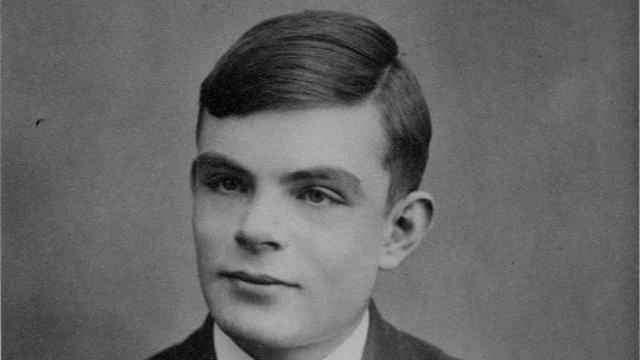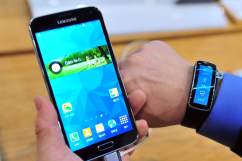
(Wikimedia Commons)
Legendary codebreaker and computer scientist Alan Turing has received a posthumous royal pardon for being gay. Learn all about Turing before Benedict Cumberbatch‘s new film The Imitation Game premieres.
1. Alan Turing Broke the Enigma Code
Learn more about Turing in the fascinating lecture above.
The New York Times notes that one of Turing’s most important achievements was helping to break Enigma, the intensely complex code used by the Nazis during World War II. In addition to his contributions to cryptography, Turing’s advances also helped contribute to the development of the modern computer.
2. Alan Turing Was Castrated for Being Gay
Homosexuality was illegal in England during Turing’s lifetime, and gay people could be charged with “gross indecency” if their secret got out. In 1952, Turing’s sexual preferences were revealed. He was given a choice between serving a prison sentence, or being chemically castrated. He chose the latter, and was injected with a large dose of female hormones. The Times notes that Turing lost his security clearance after his sexuality was discovered. Last year, Turing was given a posthumous royal pardon.
3. Benedict Cumberbatch Plays Turing in ‘The Imitation Game’

(Getty)
Benedict Cumberbatch will play Alan Turing in The Imitation Game, which will premiere at the Toronto International Film Festival next month. The film is already building a ton of buzz, with Deadline reporting that the film set a record for “the highest price paid ever for U.S. rights on a movie at the European Film Market. The Weinstein Company paid a reported $7 million to close the deal.
The Imitation Game is already facing criticism from some Turing experts. Turing biographer Andrew Hodges has told the press that the film has many inaccuracies. According to the Daily Mail, the film gets a lot about Turing’s love life completely wrong:
“Bletchley codebreaker Joan Clarke will be played by Keira Knightley as Turing’s girlfriend – despite the fact that he was gay…
[Hodges] said while the couple had been ‘briefly engaged’, it was said that he liked her because he could talk to her as if she were really another man’ and there had never been much physical contact…
But Hodges is said to be more concerned about the main story line, which invents a fictional relationship between Turing and John Cairncross, who was later identified as the fifth man in the British spy ring that included Kim Philby and Guy Burgess.
People who worked on separate projects at Bletchley were kept apart and Hodges labeled the scenario ‘ludicrous’ adding that Turing and Cairncross would never have met.”
4. Alan Turing Committed Suicide

(Getty)
Two years after being sentenced to chemical castration, Turing took his own life. It is believed that he committed suicide by injecting an apple with cyanide, and then consuming half of the apple. According to the Turing biography on Turing.org, his body was discovered by his cleaning lady. Turing’s own mother believed that Alan’s death was unintentional, caused by him accidentally leaving cyanide residue on his hands after a chemistry experiment. The coroner’s official ruling of Turing’s death was suicide.
5. Alan Turing Is the Father of Artificial Intelligence
Check out the official teaser trailer for The Imitation Game above.
Turing wrote a paper pondering some questions of artificial intelligence back in 1950. Turing’s name has been applied to the “Turing Test,” which is a way of testing the quality of artificial intelligence. In order to “pass” the test, a computer has to be sophisticated enough to trick a human into thinking that he or she is communicating with another human, and not with a machine. The Washington Post reports that a computer was finally able to pass the Turing Test earlier this year.
Turing’s name has also been lent to the A.M. Turing Award, an award that is sometimes referred to as the “Nobel Prize” of Computing.

